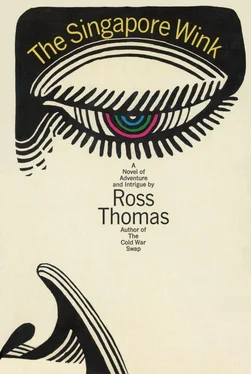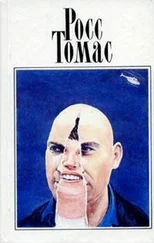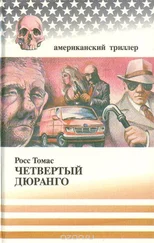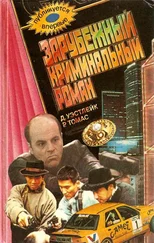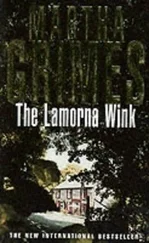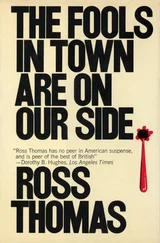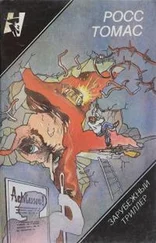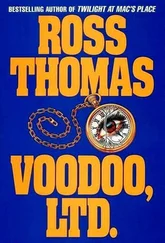I had tried to get rid of it through the analysis and Dr. Melvin Fisher seemed mildly interested in what he called my repetitive hallucinations. “They’re a little rare,” he said, “but not extremely so. They disappear when the patient no longer needs them as an adaptive tool for getting well.”
“You mean it’s no worse than a bad cold?” I said.
“Well, not exactly. A person who hallucinates as you do has regressed to the most primitive mode of perception. Freud said somewhere that hallucination is the result of the cathexis passing over entirely from the memory system to the perception system. That’s what you’re doing. When you decide to get over it, you will.”
“I’m ready now,” I said.
The doctor looked at me with his sad dark eyes and smiled. “Are you really?”
“I’m ready,” I said again.
He shook his head slightly. “Come back and see me when you are.”
I never went back and the hallucination continued. It grew no better or worse and that night when I was through shaking and sweating I poured a brandy and opened a novel about a thirty-eight-year-old advertising executive in Des Moines who suddenly decided to leave his wife and three children and find the real him in Mexico. In Cuernavaca, I think. By midnight he was still looking and I no longer cared. It had been another evening of taut adventure in the glamorous life of a Hollywood used-car dealer and I was ready for sleep.
The clock by the side of my bed said it was three in the morning when the phone rang. It was Trippet and his tone was more clipped than usual, a sure sign that he wasn’t happy.
“Sorry to awaken you, but I’m at Mount Sinai.”
“Are you hurt?” I asked.
“No. It’s Sydney, I’m afraid. The doctor is with him now.”
“What happened?”
“Your friends. Your friends did something to him. To his hands.”
“What?”
“They slammed a car door on them.”
“Jesus.”
“They slammed it twice.”
“I’ll be right there. How is he?”
“If they’re lucky,” Trippet said, “they’ll save them both.”
Sydney Durant was barely twenty years old when a car full of UCLA students found him wandering down the middle of Sunset Boulevard at two-thirty in the morning, his mangled hands held out before him, almost chest high, the palms turned inward. The students thought he was either drunk or high until they saw the hands. Then they put him gently into their car and rushed him to Mount Sinai hospital. The only thing that Sydney said to the students was: “They had to do it twice. The bastards had to do it twice.” At the hospital he told them his name and also managed to mention Trippet’s. Then he collapsed.
Trippet told me all this as we waited for someone to come out of the operating room and tell us about Sydney and whether he would have one hand or two or none.
“I was able to reach Doctor Knofer,” Trippet told me.
“Good,” I said.
“He’s a specialist in this sort of thing, you know.”
“‘Messy cases,’ he called them.”
“He knows Sydney,” Trippet said. “When we were doing that old Aston Martin for him he used to drop by at odd times and just watch Sydney work. He came to know him rather well.”
“What’s he predict?”
“He doesn’t. The bones aren’t just broken, some of them are crashed, and there’s also extensive nerve damage. Then there are the veins to worry about. He didn’t sound optimistic.”
Nobody was waiting for Sydney Durant to come home; there was no one that we should call. He had wandered in off the street eighteen months before, looking for a job, and equipped only with the totally unsupported claim that he was, in his own profane estimate, “the best goddamned body man in town, especially aluminum.” He offered no references or information about his past other than that he came from “back east” which, in our town, could have meant Syracuse or Salt Lake City. Because Trippet prided himself on being an extraordinary judge of character, Sydney was hired on the spot.
He proved to be as good as he said he was, perhaps even better, and when the business expanded it was Sydney who recommended Ramón Suarez as “the best goddamned cloth man in town.” Ramón, who at nineteen spoke a vague brand of English, turned out to be superb with canvas and leather. Our third employee, Jack Daugherty, a Negro who was older than the other two by a couple of years, was another Sydney Durant find. All that Sydney had said to Trippet about Daugherty was: “He knows engines — almost as good as you.” He did.
Dr. Benjamin Knofer looked exhausted when he finally came into the waiting room at five-thirty that morning and slumped into a chair. He bummed a cigarette from Trippet, puffed on it moodily, and then held his hands out in front of him. He stared at them for long moments.
“Goddamn, you’re good, Knofer,” he said softly. “You’re really good.”
In his late thirties, the doctor was a rake of a man with extraordinarily small bones and a face that wore a look of what seemed to be perpetual exasperation. He also found it difficult to communicate without cursing.
“It was a bitch,” he said to us finally, and ground out his cigarette on the floor. “A real bitch. I saved the kid’s hands, but he won’t even be able to blow his nose or wipe his ass by himself for a long time to come. What was it, a gang fight?”
“We don’t know really,” Trippet said. “All we know is that he said that someone slammed a car door on his hands. Twice.”
“Somebody sure had a hard-on for him,” Doctor Knofer said. “Have you talked to the police?”
“Not yet,” I said.
“The hospital’s been in touch. They’ll probably be around to see you tomorrow.” He yawned and looked at his watch. “Jesus, it’s five-thirty and I’ve got another one at ten. Who gets the goddamned bill?”
“We do,” I said.
“For everything?”
“Yes,” I said.
“I’ll fix it with that broad in admittance,” he said. “She was getting ants up her fanny about who was going to pay.” He held out his hands before him and stared at them again. “A real bitch,” he said, “but goddamn, Knofer, you’re good.”
“When can we see him?” Trippet asked.
“Tomorrow,” the doctor said. “Around two. Cheer him up, will you? Tell him his hands will be okay. He’s a goddamned good kid.”
When the doctor had gone, I turned to Trippet. “I’ve decided to see the man in Washington.”
He nodded, as if he hadn’t expected me to say anything else. “Your new friends are most persuasive.”
“It’s not that,” I said. “It’s not that at all. Angelo Sacchetti has been on my back for two years. You know all about it. You’ve seen me freeze a couple of times. Now they say he’s alive. I think I’ve got to find him unless I want to carry him around with me for the rest of my life.”
Trippet was silent for almost a full minute. “I think,” he said slowly, “that it’s out of our hands now. I think it’s time to let the police handle it.”
“All right.”
“You agree?” Trippet asked. He sounded surprised.
“Why not?” I said. “I don’t want to go to Washington, not now, not even in cherry blossom time. But the police have nothing to do with my going. If they can find the goons who smashed Sydney’s hands, I’m all for it. But I already know who’s ultimately responsible, and he’s in Washington, and there’s no way in God’s world that they can ever pin it on him. But I have something that Charles Cole wants, or thinks he wants, and he also has something that I want and that something’s Angelo Sacchetti. And perhaps eventually they’ll all pay for Sydney’s hands.”
Читать дальше
